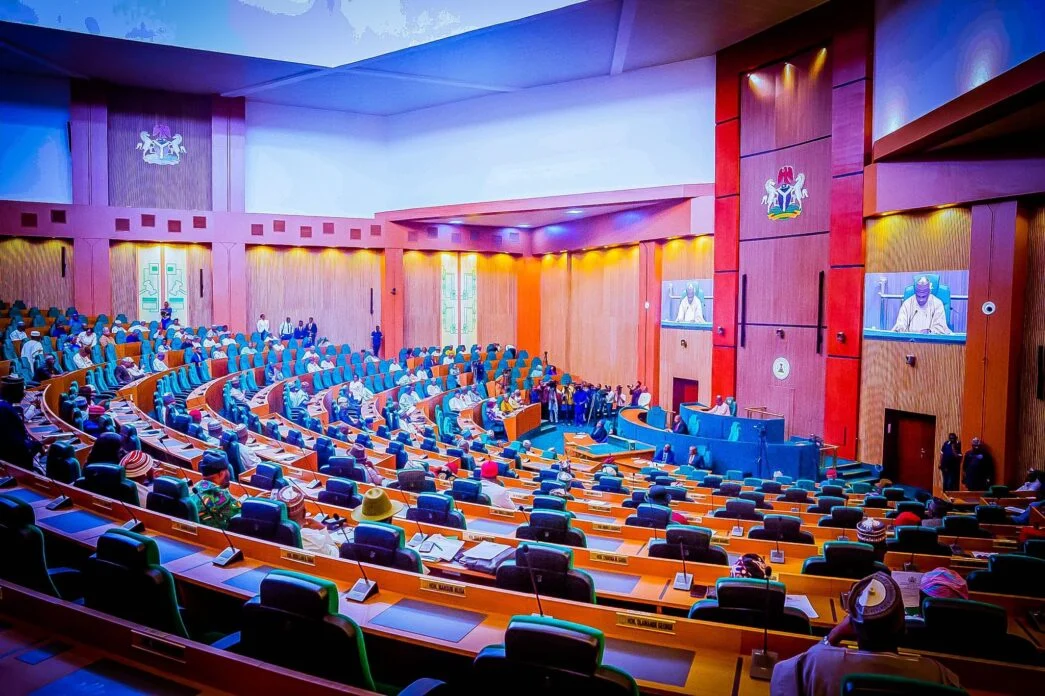The House of Representatives on Tuesday passed a resolution calling for restructuring of joint sittings of the National Assembly to alternate the roles between the Senate President and the Speaker of the House to reflect parity between the two chambers.
The lawmakers said this would allow the Speaker to open sessions while the Senate President would deliver closing remarks, and vice versa.
The resolution of the House followed the consideration and adoption of the recommendations of the report of the adhoc committee on discrimination in National Honours Awards between the two chambers of the National Assembly as presented by the House Leader, Prof Julius Ihonvbere.
Daily Trust reports that during a joint sitting session of the National Assembly comprising all senators and members of the House to receive the president mainly for budget presentation, the Senate President who is chairman of the National Assembly, usually presides the session, taking the opening remarks while the Speaker usually takes the closing remarks.
- Senate sets up panel to probe NDLEA’s drug allegation against colleague
- Kaduna APC Congratulates Newly Elected Local Government Chairmen, Councillors
But of late, there have been raging debates among members of the House of Representatives following the award of Grand Commander of the Order of the Niger (GCON) to Senate President Godswill Akpabio and Commander of the Order of the Federal Republic (CFR) to Speaker Abbas Tajudeen, a development that made the president to confer GCON on the Speaker.
The House said restructuring the role at joint session aimed to promote equality and correct the long-held perception of one chamber’s superiority to the other.
The House while commending President Bola Ahmed Tinubu for using his discretion in awarding the GCON to the Speaker of the House, however, emphasised that this recognition should be extended to the Deputy Speaker, the Deputy Senate President, and other principal officers of both chambers to ensure equal status within the National Assembly.
The House also resolved that former presiding and principal officers of the National Assembly should also be considered and accorded the same honours.
The House also resolved that in a bid to reshape public perception, the legislature must actively promote its own narrative.
The House while citing skewed representation of the legislature in the media, which it said had fostered misunderstanding regarding the hierarchical distinction between the House of Representatives and the Senate, resolved to actively promote its own narrative to change public perception.
The committee highlighted the need to eliminate terms that imply superiority, such as referring to the Senate as the “Upper Chamber” and the House as the “Lower Chamber,” and the misnomer of a “Chairman of the National Assembly.”
In addition, the House proposed the establishment of a National Assembly Service Award through legislation, inspired by the Congressional Gold Award of the United States, to honour excellence, service, and dedication within the legislative body.
The lawmakers called for a review of the National Honours Act, Cap. N43, Laws of the Federation of Nigeria, 2004, to reflect contemporary realities and the evolving political landscape, noting that the existing legislation was rooted in a framework established in 1964.

 Join Daily Trust WhatsApp Community For Quick Access To News and Happenings Around You.
Join Daily Trust WhatsApp Community For Quick Access To News and Happenings Around You.

